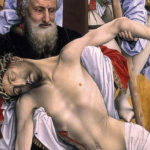
Increasingly nations are taking interest in concepts related to the end of the earth, earth as we know it. Survival or extinction is being taken seriously. From ancient times biblical literature has addressed the earth and mankind – their meaning and durability, blessings and threats, and purposes for existence. We now have a variety of prognostications based on science, faith, and assumptions both plausible and implausible. There is a general agreement that the life world, as we know it, will end. Some believe it will end with a whimper, some believe a cataclysm, some believe a dead planet, but all indicate the end of mankind unless some other locale is found for mankind to emigrate, and begin another phase of… Read more







